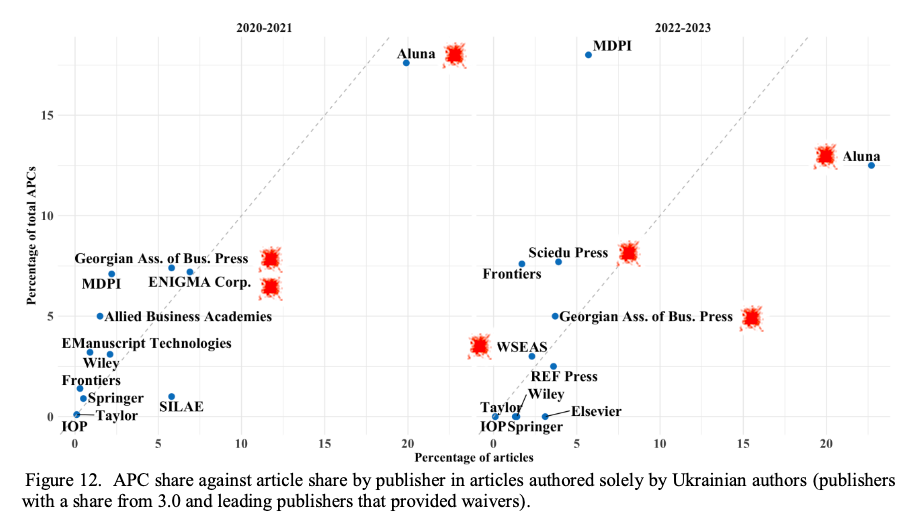A new preprint on Ukrainian publications in Gold Open Access has a very telling Figure 12. And you know what? It’s a total disaster.
👉 https://arxiv.org/abs/2508.08850
It turns out that the largest shares of our APC spending go to MDPI and the Polish Aluna Publishing House. Even worse — the top list also includes “famous” players like WSEAS, Sciedu Press, and the Georgian Association of Business Press = dubious publishers.
#OpenAccess #PredatoryPublishing #Ukraine #Science #APC #GoldOA
